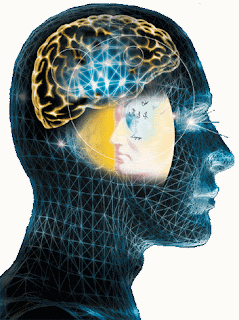







 Psycho-logical Phenomena like sleep or span of memory ,can also be studied through the use of such psycho-physical methods.Three Classical psycho physical methods devised by the German physiologist and physicist Gustav Fechner (1801-1887).They are
Psycho-logical Phenomena like sleep or span of memory ,can also be studied through the use of such psycho-physical methods.Three Classical psycho physical methods devised by the German physiologist and physicist Gustav Fechner (1801-1887).They are
1.The Method of minimal changes (or) methods of limits.
2.The Method of constant stimuli (or) the method of right and wrong responses.
3.The Method of average (or) mean error.
Method of Minimal Changes
The subject is exposed to experience a sensation.For Example,He may be asked whether he is able to see the object lying at a particular distance or not.If he says no then the value of the distance is gradually decreased until the subject reports that he is able to see it.In the next round,The object may be placed at the distance much nearer than the absolute threshold say 70cms in the present case.




Abnormal psychology
Abnormal psychology is the study of abnormal behavior in order to describe, predict, explain, and change abnormal patterns of functioning. Abnormal psychology studies the nature of psychopathology and its causes, and this knowledge is applied in clinical psychology to treat a patient with psychological disorders.
Biological psychology
Biological psychology is the scientific study of the biological bases of behavior and mental states. Because all behavior is controlled by the central nervous system, it is sensible to study how the brain functions in order to understand behavior.The approach of cognitive neuroscience to studying the link between brain and behavior is to use neuroimaging tools, such as to observe which areas of the brain are active during a particular task.
Cognitive psychology
Cognitive psychology is associated with a school of thought known as cognitives, whose adherents argue for an information processing model of mental function, informed by positivism and experimental psychology.Cognitive science is a conjoined enterprise of cognitive psychologists, neurobiology, workers in artificial intelligence, logicians, linguists, and social scientists.
Educational psychology
Educational psychology is the study of how humans learn in educational settings, the effectiveness of educational interventions, the psychology of teaching, and the social psychology of schools as organizations.
Developmental psychology
Mainly focusing on the development of the human mind through the life span, developmental psychology seeks to understand how people come to perceive, understand, and act within the world and how these processes change as they age.
Social psychology
Social psychology is the study of the nature and causes of human social behavior and mental processes, with an emphasis on how people think towards each other and how they relate to each other. Social Psychology aims to understand how we make sense of social situations.
Clinical psychology
Clinical psychology includes the study and application of psychology for the purpose of understanding, preventing, and relieving psychologically-based distress or dysfunction and to promote subjective well-being and personal development. Central to its practice are psychological assessment and psychotherapy, although clinical psychologists may also engage in research, teaching, consultation, forensic testimony, and program development and administration.
ARTICLE SOURCE: http://en.wikipedia.org/wiki/Psychology

 In 1890s, The Austrian physician Sigmund Freud developed a method of psychotherapy known as psychoanalysis. Freud's understanding of the mind was largely based on interpretive methods, introspection and clinical observations, and was focused in particular on resolving unconscious conflict, mental distress and psychopathology.
In 1890s, The Austrian physician Sigmund Freud developed a method of psychotherapy known as psychoanalysis. Freud's understanding of the mind was largely based on interpretive methods, introspection and clinical observations, and was focused in particular on resolving unconscious conflict, mental distress and psychopathology.
Behaviorism:
Partly in opposition to the subjective and introspective nature of Freudian psycho dynamics, and its focus on the recollection of childhood experiences, during the early decades of the 20th century, behaviorism gained popularity as a guiding psychological theory. Founded by John B. Watson and embraced and extended by Edward Thorndike, Clark L. Hull, Edward C. Tolman, and later B.F. Skinner, behaviorism was grounded in animal experimentation in the laboratory. Behaviorism was the dominant paradigm in American psychology throughout the first half of the 20th century. However, the modern field of psychology is largely dominated by cognitive psychology.
ARTICLE SOURCE: http://en.wikipedia.org/wiki/Sigmund_Freud


ARTICLE SOURCE: http://en.wikipedia.org/wiki/Psychology

Human Psychology Copyright 2009 This Blog Developed by Monkey Dollars